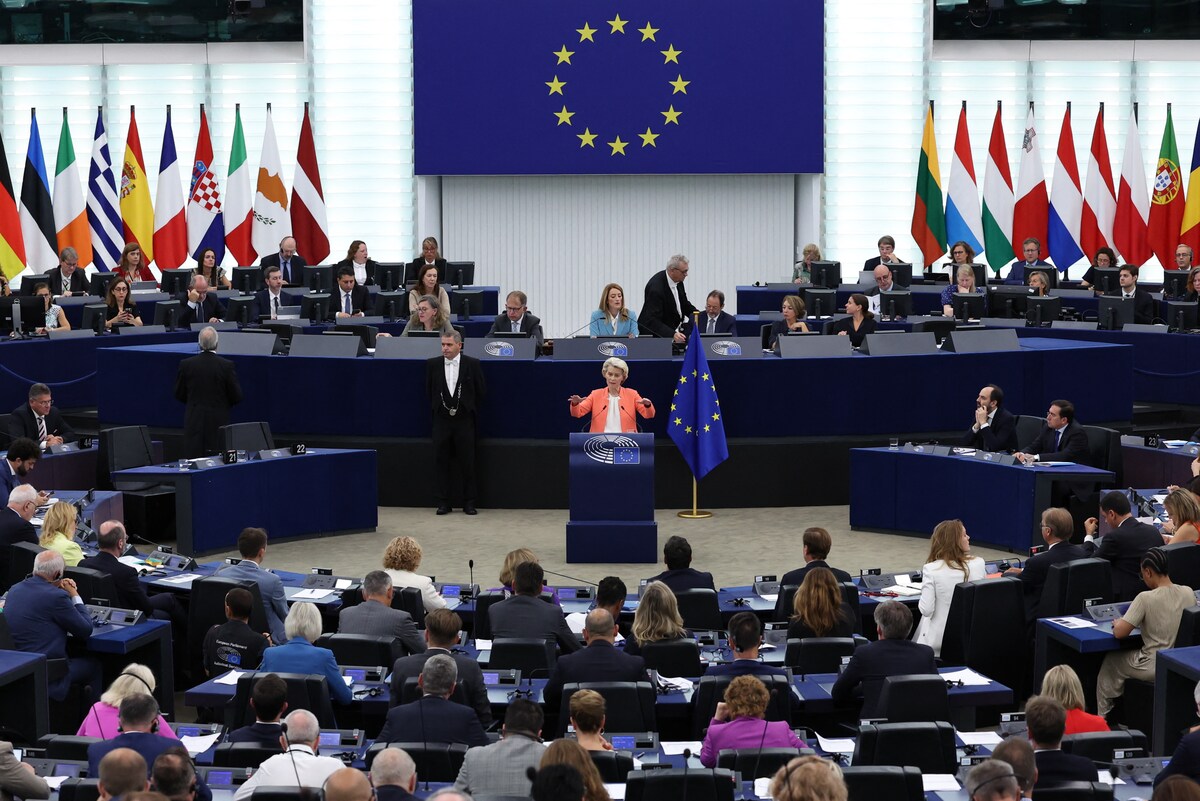Brussels, Belgium – The European Union was poised on Thursday to agree new rules for how it handles arriving asylum-seekers and irregular migrants after Germany said it would go along with the intensely-negotiated package.
Once implemented, the new Pact on Migration and Asylum would seek to relieve the pressure on so-called frontline countries such as Italy and Greece by relocating some arrivals to other EU states.
Those countries opposed to hosting asylum-seekers – Poland and Hungary among them – would be required to pay the ones that do take migrants in.
At the same time, the European Union will seek to speed up processing of asylum applications so that migrants deemed inadmissable are returned to their country of origin or of transit, and maximum detention times for migrants in border centers would be lengthened from the current 12 weeks.
German Interior Minister Nancy Faeser told a Brussels meeting of EU counterparts “we will vote in favor” of a compromise text on the pact drawn up by Spain, which currently holds the EU presidency.
That was a change of position for Germany, which in a previous vote held in July had abstained because it felt the detention policy was too strict for migrant minors and families.
Going into Thursday’s meeting, Faeser said she was confident the compromise text would reflect Germany’s position.
In Berlin, German Chancellor Olaf Scholz confirmed the shift, saying his government “will not stand in the way” of the pact being adopted.
Paralysis on the issue had caused growing frustration in the 27-nation bloc as it faces a rise in irregular migration.
The arrival of thousands of asylum-seekers arriving from Africa on the Italian island of Lampedusa notably spurred urgency to get the revised policy in place.
European Commission chief Ursula von der Leyen, whose EU executive proposed the new pact three years ago only to see it hit a long impasse, urged for it to be finally approved on Thursday.
“We must now finish the job. We must ensure proper implementation of the Migration and Asylum Pact,” she said, during a visit to Croatia.
EU aims for solidarity
Part of the aim of the revised policy is for European Union countries to act together should they be faced with a sudden large inflow of asylum-seekers, as happened in 2015-2016 when hundreds of thousands of migrants arrived, most of them Syrians fleeing the war in their country.
But in the failed July attempt to vote in the package, Hungary, Poland, Austria and the Czech Republic voted against, objecting to the host-or-pay requirement.
On Thursday, as he arrived for the Brussels meeting, Austrian Interior Minister Gerhard Karner said he was “happy and grateful that there has been movement in the last few hours, in the last few days” on the dossier.
In Budapest, Gergely Gulyas, chief of staff of Hungarian Prime Minister Viktor Orban, heaped fresh criticism on the migration pact.
“All they can achieve with this migration pact is to turn the border countries, countries along the Schengen border into Lampedusa,” he said.
The European Parliament had added its own pressure on the ministers by deciding last week to pause negotiations with EU member states on aspects of the pact that had met little resistance, dealing with reinforced security along the bloc’s outer border.
One relates to Eurodac, a biometric database for asylum-seekers, and another has to do with the introduction of a mandatory screening procedure of irregular arrivals.
The goal of the EU is to have the reform adopted before European elections next June that will usher in a new European Parliament and commission.
The next cycle in EU politics could see a political shift in the European Parliament, given the rise of right-wing parties in several EU countries, and would see Hungary and Poland take turns holding the rotating EU presidency.

